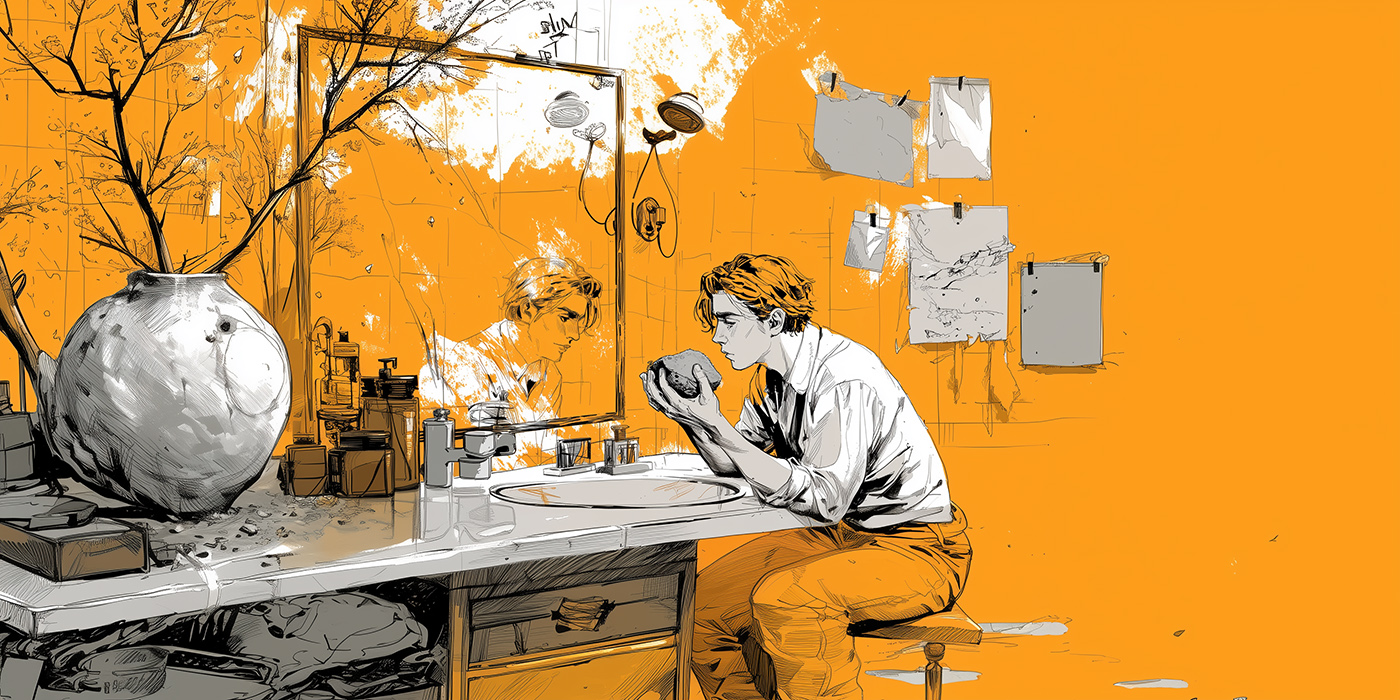
SA taught him that letting go of guilt was not only okay, but necessary
Fear and shame were awaiting my entrance into the world. My grandmother was harassed and bullied for her parents’ financial struggles, language, skin color, and country of origin. So she resolved to protect her children from the same fate by refusing to pass down her native language, traditions, customs, or history, and insisting that they marry spouses who embodied her idealized notion of an acceptable national archetype. My mother’s inherited shame about her background then manifested itself by overcompensating for her own perceived shortcomings. This included raising children who embodied her idealized notion of success: good grades, etiquette, careers, marriages, etc.
As if these pressures weren’t enough for my childhood, I added the shame of my own notions of success: in a word, “perfection” in all areas of life. Of course, this became extra challenging as my acting-out behaviors progressed, so the next best goal was to appear perfect until I could figure out how to achieve the real thing. This image management required vast amounts of energy. I weaponized guilt by holding onto it after it had served its purpose, letting it fester into another form of shame, thinking this Higher Power would prevent me from ever acting out again. This never worked for long, but I hoped that all my efforts to at least appear perfect would result in obtaining intimacy, admiration, and even worship from everyone around me.
Before God led me to SA, I had heard that imperfection was an acceptable, understandable, indeed inevitable part of the human experience, but I didn’t really believe that it could be true for me. Discovering an environment without judgment, where others freely and honestly opened up about their imperfections and choices, changed that.
Sobriety required letting go of weaponizing natural feelings of guilt into shame. After guilt motivates me to work the Program to make better choices more likely, letting it go is not only okay, it’s essential. Admitting powerlessness also meant that I needn’t feel shame about my past, when I didn’t even have the required tools to be who God is calling me to be (hint: not perfect). By the time I gave away my First Step to my home group, I’d learned that the notions of my grandmother, mother, and self were all unrealistic, and that most members knew the same. So not only could I stop pursuing them, I didn’t have to pretend I had achieved them either. I admitted in my First Step giveaway that I had even been pretending with the group, so that they would be on to me any time I tried to do it again. This forced me into the early stages of allowing others to see me as I was, first in the Fellowship, then in other areas of my life.
In Steps Two and Three, I learned that trying to use guilt and shame as a higher power to change my behavior only reinforced it by feeding the cycle of addiction. Changing my behavior is only possible when I surrender to God as my Higher Power. And even then, He isn’t changing my behavior—I am, first by working the Steps, and then by living the rest of the legacies of recovery, unity, and service.
In Steps Four through Six, I identified even more ways that fear and shame show up for me. My fears of judgment and criticism from others stem primarily from my own judgment and criticism toward myself, which means that freedom from those fears is more up to me than I realized. As I continue to work the later steps, especially Step Nine, I am blessed with the confirmation that my past mistakes do not define me. I gain a clearer sense of who I am and who God is calling me to be, regardless of what others think or how they treat me, even as I prepare to follow in my great-grandparents’ footsteps of emigrating to another country.
Brian Z., Turlock, CA






